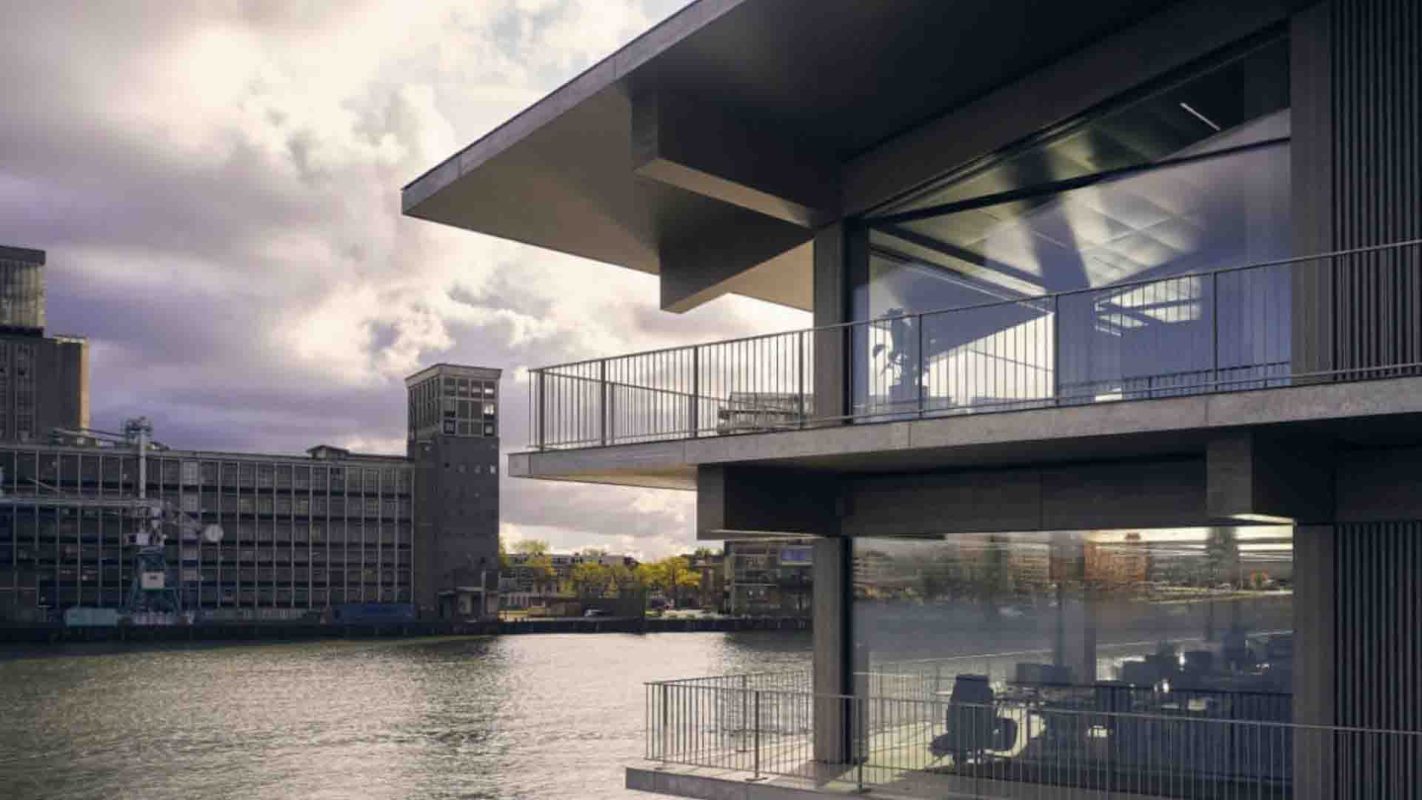The world's largest floating office building sits atop 15 concrete barges on the Maas River in Rotterdam's Rijnhaven.
The off-grid structure, named Floating Office Rotterdam (FOR), was designed by architectural firm Powerhouse Company, which has called the building home since it opened its doors in 2021.
It is also home to the Global Center on Adaptation (GCA), an organization working on solutions for climate change. Former UN Secretary-General Ban Ki-moon is chair of the GCA.
FOR was inaugurated by King Willem-Alexander of the Netherlands along with Ki-moon.
Powerhouse Company designed the floating office building out of cross-laminated timber floor slabs, which make the structure light enough to float while also reducing the building's environmental impact.
The building, which measures roughly 38,800 sq ft, features a large terrace area, three floors, and a green roof. Upper levels have overhanging balconies that help provide shade. The building's design enables it to float as sea levels rise.
The building's green roof is outfitted with solar panels for all of its electrical needs, and it can also store rainwater.
FOR also harnesses the harbor water it floats on for its passive heating and cooling system. The concrete barges underneath the structure contain a pipe system that uses the temperature of the harbor water to cool or warm the building as needed.
And the FOR structure components can be recycled at the end of the building's life cycle.
"Designing a sustainable, floating office building was a very challenging commission and we approached it in an integrated way," Powerhouse Company founder Nanne de Ru, said in a statement. "By using the water of the Rijnhaven to cool the building, and by using the roof of the office as a large energy source, the building is truly [self-sufficient]."
Launching the project in Rotterdam, the second-largest city in The Netherlands and Europe's largest port, is significant as the city is also a leader in climate solutions, including other floating structures like a nearby floating dairy farm.
Floating structures are being explored around the world as a means to survive climate change. The Maldives is building a floating city in the Indian Ocean that could be home to more than 200,000 people.
The United Nations announced plans to bring its floating city concept to waters off the coast of South Korea by 2025.
"A climate-resilient world is one of the biggest challenges for current and future generations," said de Ru. "With this building, we want to show that real estate development can also take the initiative in solving these climate-related threats."
Want more? Follow The Cool Down on Instagram and join our Weekly Newsletter for cool stories and easy tips that save you money, time, and our planet.








